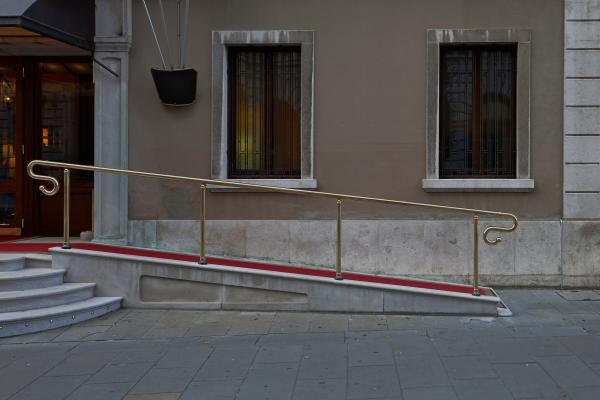RECENTLY, THE CATHOLIC CHURCH moved toward beatifying Archbishop Óscar Romero, who was martyred while presiding at a Mass in El Salvador in 1980. Romero preached that, for the love of God, soldiers and paramilitary forces must stop murdering their brothers and sisters—and he paid with his life. Many have since honored his witness during El Salvador’s civil war as “a voice for the voiceless.” Without a doubt, more of us should take on that mantle.
And yet. Sometimes we are notcalled to be a voice for the voiceless. Sometimes we are called to listen carefully and discover the voices in our midst. Sometimes we are called to consider whether weare the ones preventing voices from being heard.
We are almost 25 years beyond the passage of the Americans with Disabilities Act, and while access is still not all it should be, we need to move beyond the wheelchair ramp. We need to listen to those living with disabilities—as fully human, as fallen and holy, as friends of Christ, as people with abilities, as disciples on the Way.
What is disability? This simple question is not easily answered. There are people living with impairments, a loss of expected physiological form or function. A person missing a leg. A person whose optic nerve did not develop correctly. A person who has sustained a brain injury. The disability refers to the consequences of an impairment: loss of walking, blindness, memory issues. Handicap, in turn, refers to the societal disadvantage resulting from an impairment.
But when talking to people living with disabilities, those clear-cut categories become muddy. Some embrace the term “disability” as a simple aspect of who they are, a way of describing their lives and advocating for societal change. Others reject the term, saying they perceive no negative consequences from their impairments, only positives. Others fear the term and simply do not use it.
Read the Full Article

